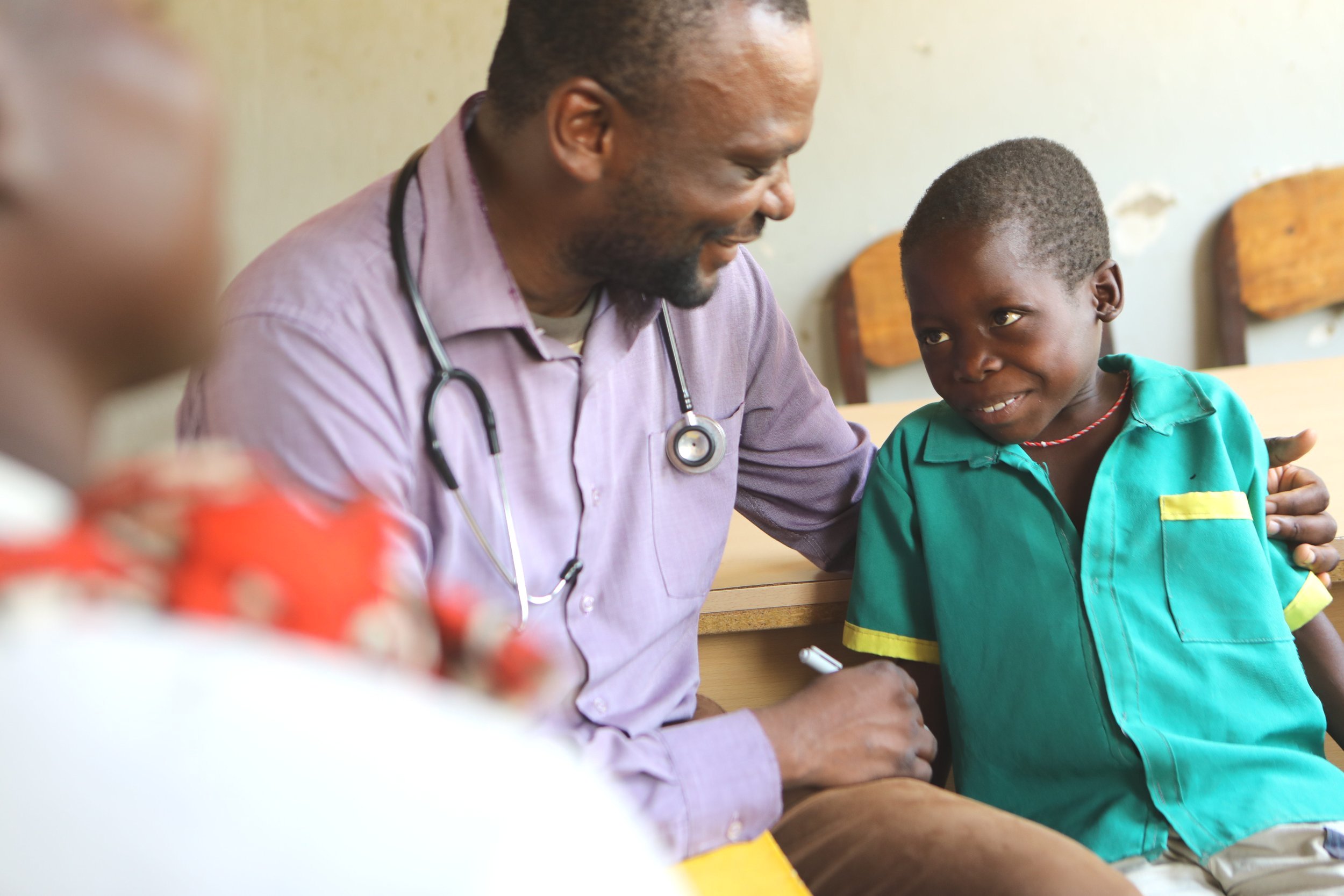Bridging the gap in universal health coverage for the poorest billion
The NCDI Poverty Network is a collaboration of national commissions from countries representing the poorest billion as well as their technical, policy, and advocacy partners. The Network supports countries as they implement the recommendations of the Lancet NCDI Poverty Commission to reduce the death and suffering of the poorest people, primarily children and young adults, who live with severe, chronic noncommunicable diseases.
Mission
The Network aims to prevent and reduce the death and suffering of those doubly burdened with extreme poverty and noncommunicable diseases by supporting National NCDI Poverty Commissions in countries with a high prevalence of extreme poverty. The NCDI Poverty Network will elevate an emerging NCDI Poverty movement and develop accountability mechanisms to ensure that service delivery for NCDIs is a key component of Universal Health Care for the poorest populations by providing a platform for global, regional, national, and local leaders to continue shared research, policy, service delivery, and financing initiatives.
Key Objectives
The NCDI Poverty Network has the objectives to:
Promote technical cooperation and coordination among National NCDI Poverty Commissions and stakeholders dedicated to addressing NCDIs related to poverty
Provide a platform for research and capacity building for understanding and addressing NCDIs related to poverty
Catalyze funding to support health sector interventions for NCDIs affecting children and young adults in LLMICs
Our History
The NCDI Poverty Network was formed to reframe the NCD agenda in the interest of equity so that global financing and policy-making institutions can address more fully the needs of the poorest patients in low-income countries.
The Network was formally launched on December 7, 2020, at a global virtual event organized by the Lancet NCDI Poverty Commission and representatives of national NCDI Poverty Commissions in 15 low- and lower-middle-income countries with large populations of people living in extreme poverty. More than 330 people from 53 countries participated in the plenary event, and more than 160 took part in one of four regional breakout discussion sessions for: East Africa; Southern Africa; West Africa and the Caribbean; and South and Southeast Asia.
The NCDI Poverty Network Charter was formally adopted and ratified by the Steering Committee on February 12, 2021.
Background
NCDs and injuries have been identified as priorities both for global health and for equitable and sustainable development, yet global policies and funding devoted to NCDs focus almost entirely on four diseases – cardiovascular disease, cancer, diabetes, and chronic respiratory disease – and four “lifestyle” behavioral risk factors – namely tobacco use, unhealthy diets, lack of physical activity, and alcohol abuse. This global agenda has effectively excluded the world’s poorest and most vulnerable populations, who suffer a heavy and avoidable burden of NCDs that are not linked to preventable behaviors, including type 1 and malnutrition-associated diabetes, rheumatic heart disease, childhood cancers, asthma, chronic kidney disease, epilepsy, mental health conditions, trauma, and other severe and avoidable conditions that disproportionately affect those living in extreme poverty.
The Lancet NCDI Poverty Commission
The Lancet Commission on Reframing NCDs and Injuries for the Poorest Billion (Lancet NCDI Poverty Commission) was the catalyst for the formation of the NCDI Poverty Network. The Lancet NCDI Poverty Commission was formed in 2016 with the hypothesis that the noncommunicable disease and injury (NCDI) burden experienced by those living in extreme poverty was different, but no less important, than the NCDI burden in other populations. The daily clinical experiences of many of the Commissioners working in rural health facilities in South Asia and sub-Saharan Africa had left a striking impression: namely, that NCDIs in these settings were an integral part of the death and suffering of the poorest; that these NCDIs struck young and nutritionally-deprived patients who were also vulnerable to infectious disease; and that the conditions grouped under the label of NCDIs were not dominated by a small number of diseases or “lifestyle” risk factors. The aim of the Commission is to rethink global policies, to mend a great disparity in health, and to broaden the NCDI agenda in the interest of equity.
lancet ncdi poverty commission members with representatives of national ncdi poverty commissions, advisers, and staff at a meeting in kigali, rwanda
The Commission brought together 23 leading NCDI researchers, clinicians, policy makers, and advocates from around the world, with the support of the Program in Global NCDs and Social Change at Harvard Medical School and the NCD Synergies project of Partners In Health. The Commission was organized into four working groups with the following objectives:
to asses the scale and pattern of the NCDI burden among the poorest;
to identify and prioritize cost-effective, equitable interventions to address this burden;
to examine the state of NCDI financing in the countries where the poorest billion live; and
to better understand the history and current state of NCDI framing and governance at both global and national levels.
Drawing on the research and analysis of these working groups, the Commission developed key findings, messages, and recommendations that were published in a landmark report published in September 2020 – The Lancet NCDI Poverty Commission: Bridging a Gap in Universal Health Coverage for the Poorest Billion.
The countries that make up the NCDI Poverty Network are committed to implementing these recommendations.
National NCDI Poverty Commissions and Groups
The Lancet Commission inspired the establishment of National NCDI Poverty Commissions and Groups in 23 low- and lower-middle income countries that are home to almost half of the world’s poorest billion people. New National Commissions conduct analyses to assess their national NCDI burden among the poorest and to identify and prioritize policies, interventions, and integrated delivery platforms that would effectively address and reduce that burden. National Commissions also participate in a series of Knowledge Exchanges, engaging with presentations and discussion of topics critical to addressing NCDI Poverty via webinars organized and hosted by the NCDI Poverty Network Co-Secretariat.



